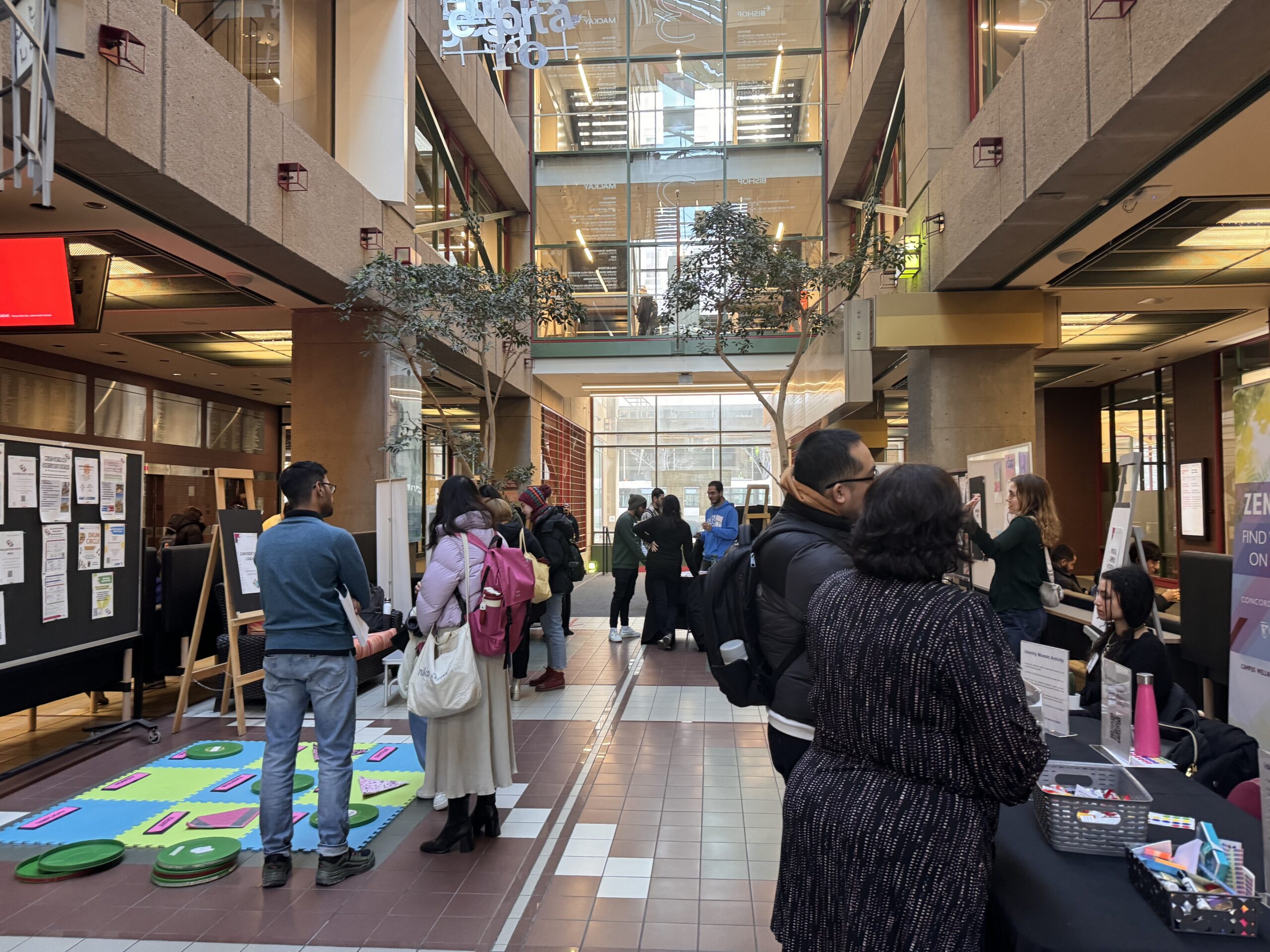Concordia’s Multi-Faith Fair hosted an event for students to learn more about different religious groups on campus.
For Concordia student Chresley Bazel, practicing Christianity made all the difference in helping him stay motivated and maintain self-esteem during his struggles with his studies.
“School was kind of hard [for me], so I had to find faith toward my goal,” said Bazel. “Having faith in God and his plan really helped me finding motivation.”
Concordia University’s Multi-Faith Fair brought together approximately 50 students on Feb. 8 who were eager to learn about faith and community. The event gave students the opportunity to connect with others and contribute to a more understanding and inclusive environment.
The fair featured a variety of activity stations, including a spiritual tic-tac-toe, as well as tables where students could speak with representatives from various religious organizations, including the Sikh Student Association and the Thaqalayn Muslim Association.
“I think this kind of event is really significant and important, especially for students to know that we, as different religions, represent this diversity that Concordia has,” said Mohamad Abdallah, a 22-year-old Concordia student and a member of the Thaqalayn Muslim Association.
A 2024 Gitnux report on religious trends among Gen Z observed that this generation of students is changing the perspective on religion, making them the most ethnically and religiously diverse generation.
Based on their findings, increased acceptance and understanding of various faiths and beliefs distinguish this generation from previous generations. This creates an approach of openness to the beliefs of others and encourages spiritual exploration and education.
Khelifi Samy, a Concordia student who also attended the fair, said that the younger generation can improve acceptance and understanding of others regardless of their differences through communication, allowing for more diverse perspectives on life and religion. Samy said that events like these allow him to connect, discuss, and learn from others in the community.
“I think on my own part because of […] events here I’m able to connect with many other people and to understand their point of view, and have discussions open to each other. ‘What do you think of this?’ ‘What do you think of different and various topics?,’’ said Samy.
Abdallah has his own perspective on generational differences in religion, pointing out that older generations tend to be more conservative while younger generations lean towards more liberal beliefs.
“I think the younger generation emphasizes more on unorthodox stuff, like untraditional stuff in religion, and maybe they want to liberalize and reform religion in some way […] which is not wrong, but older generations are more focused on conserving values and traditions, and I think we should have something in between,” said Abdallah.
Springtide Research Institute, a non-profit American organization that studies generational trends, calls this new approach to religious and spiritual practice “Faith Unbundled.” This means that younger generations are starting to follow multiple beliefs and practices that they prefer without formal commitment, overall changing the traditional approach to these practices.
With each generation, the perception of religion changes, often with a greater emphasis on spiritual exploration and diversity. As younger generations become more open-minded, their approach to religion reflects a desire to reinterpret and reform traditional values, bridging the gap between preserving traditions and embracing modern perspectives.
